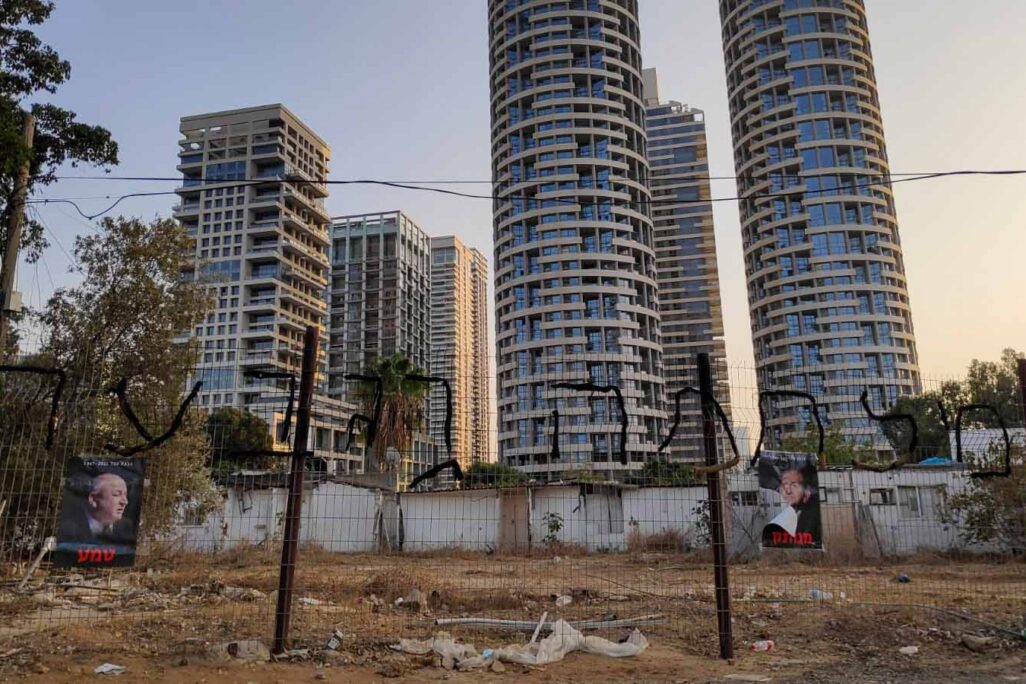
After a lengthy legal process, the residents of Tel Aviv’s Givat Amal neighborhood were forcibly evicted from their homes last week. The working-class neighborhood – located in the northern, more affluent part of the city – is to be demolished and replaced with luxury apartment buildings.
Hundreds of police officers arrived last Monday morning in the neighborhood to evacuate the remaining families from their homes. Residents barricaded themselves in homes along with activists who came to support them. The evacuation began at 9:00 am, and around 10:00 am became a forced evacuation. One of the activists fainted and received medical assistance. By 4:00 pm, the neighborhood was already empty of residents.
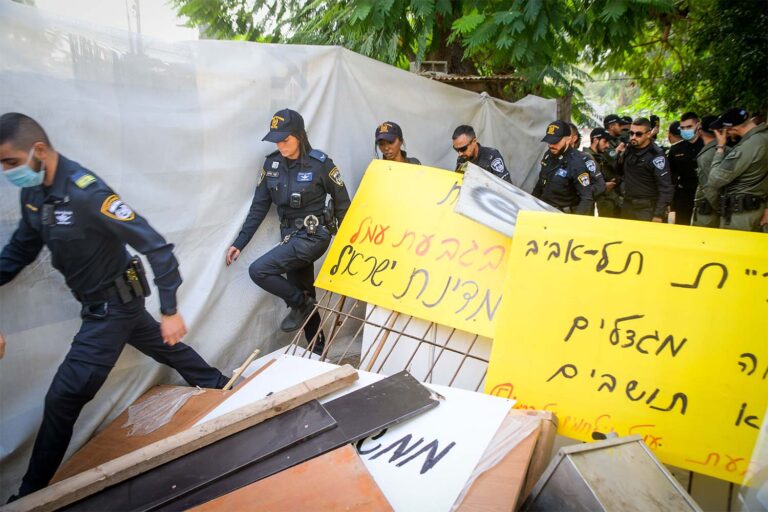
Construction workers were present on the scene and demolished the houses from the inside, as well as a moving company whose workers loaded the contents of the houses into trucks. While 73-year-old resident Levana Ratzabi was being evicted, she shouted, “Someone, stop this. Look at yourselves. The only way I will leave here will be on a stretcher.” Ratzabi later agreed to evacuate, and she was taken away in a police minibus.
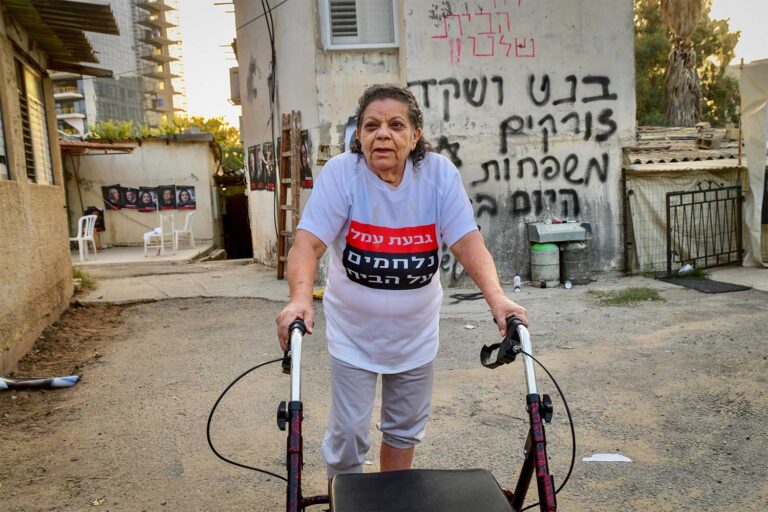
Givat Amal, which was inhabited by around 45 families before the mass eviction, was first settled by Jews in 1946. David Ben-Gurion ordered a group of Jewish families, mostly from Muslim countries, to settle in what had been the Palestinian village of al-Jammasin al-Gharbion, north of still modestly-sized Tel Aviv. The state told the families that they should protect the area, the residents of which had fled or been expelled, and that in return for the protection they would receive small plots of land.
Rachel Levy, 80, who was evicted from Givat Amal, was among this founding generation.
“When we arrived, we were four children, together with my parents and my sister still in my mother’s womb. I remember everything,” Levy said.
She is now raising a fifth generation in the neighborhood. Levy’s husband was also raised in Givat Amal, and they have lived in a modest three-bedroom house since 1961, most of which they built and renovated themselves.
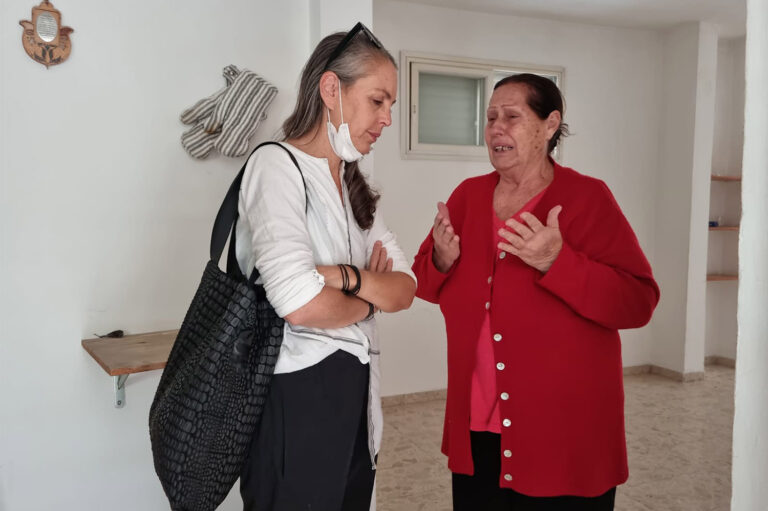
In 1961, the Israel Land Administration, which manages public land in Israel, sold the land of Givat Amal to a housing company owned by Bank HaPoalim, which was at the time a state-owned bank. The land was then sold to Solel Boneh, Israel’s then-public construction company. Yitzhak Tshuva, an Israeli billionaire businessman, bought the land in 1987. The state, for its part, gave an 80% discount on the purchase of the land, and in return demanded that Tshuva provide the neighborhood’s residents with compensation and alternative housing.
Last week’s eviction is the final act in a series of lawsuits that began in 2016, when Tshuva sued the families in Givat Amal for 2.5 million shekels each (about $800,000), alleging illegal trespass on private property. The court ruled in 2018 that the residents were not trespassers but did not decide to stop the evictions.
The final compensation determined for the 45 families is a total of 42 million shekels (about $13.5 million), which will be distributed evenly, amounting to about 930,000 shekels ($300,000) per family. Evicted residents say this amount is inadequate to find alternative housing.
“You can't buy a warehouse in Tel Aviv with this money,” Levy said angrily.
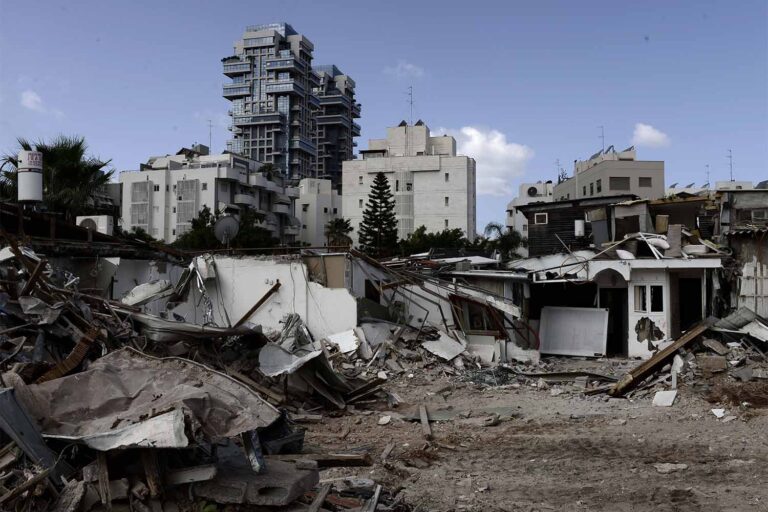
Levy, who, as mentioned, came to Givat Amal before the establishment of the state, and lives in the neighborhood with her husband, is considered a veteran resident – which gives her compensation in a slightly larger amount. But she refuses to accept it.
“I do not want it to be given only to me, people here are more than neighbors, we have known each other all our lives,” Levy said, adding that even a slightly larger amount would not allow her to purchase a 4-room apartment in the entire Gush Dan area.






